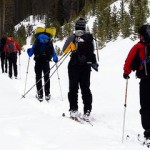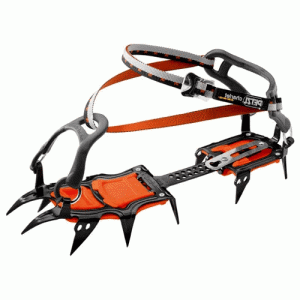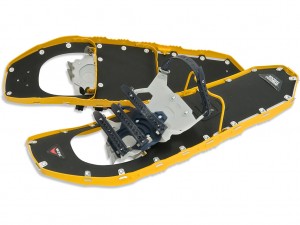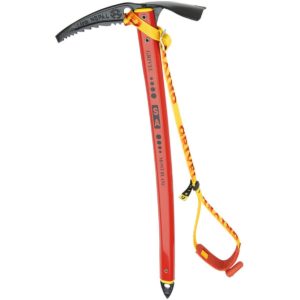 The Winter Backpacking training course is designed to help prepare the experienced Trek Leader for taking scouts into the wilderness during winter conditions. Winter Backpacking classroom training, covering the skills specific to winter/snow backpacking and camping, is followed with a weekend overnight backpacking experience where you will put your skills to use in a real winter environment.
The Winter Backpacking training course is designed to help prepare the experienced Trek Leader for taking scouts into the wilderness during winter conditions. Winter Backpacking classroom training, covering the skills specific to winter/snow backpacking and camping, is followed with a weekend overnight backpacking experience where you will put your skills to use in a real winter environment.
Who should attend?
All Scout leaders that help plan or participate in winter outings. Taking your unit backpacking during the winter requires more than just having the right equipment! It requires qualified leaders to ensure a safe trip. The Winter Backpacking training courses will help build your confidence to take Scouts on a winter outing safely.
Goal:
The course goal is to ensure that you can safely and effectively manage a backpacking program for your camp, district or unit. It will help you to solidify your knowledge of backpacking and to teach you the current policies of the BSA.
Requirements:
1. Attend a scheduled indoor training session.
2. Attend a scheduled outdoor training session. (Basic Backpacking course only.)
What will I learn:
The Outdoor Leader & Basic Backpacking training course is designed to teach:
• Planning outings in winter conditions.
• How to instruct others in winter backpacking activities.
• Proper use of winter gear and equipment.
Topics Covered:
• Cooking and caloric needs in winter
• Winter travel and camping equipment
• Snow shelters
• Layering and staying warm
• Navigation
• Survival methods and contingency planning.
Certificate:
Upon successful completion of this course, individuals satisfactorily demonstrating the skills and knowledge will receive a sign HAT Training Card (or signature on an existing card). Certifications will be granted at the successful completion of the course, and with the approval of the training staff!
Snow conditions permitting, course participants may also be able to earn awareness segments for Snow shoeing, Nordic skiing, and Ice axe use.
Training Dates:
See our Training Schedule for upcoming dates and registration information.
Equipment:
Ten Essentials: (Click here for more information on the ten essentials.)
1. Navigation (map and compass)
2. Sun protection (sunglasses, sunscreen, hat)
3. Insulation (extra clothing, rain gear, outerwear)
4. Illumination (headlamp/flashlight)
5. First-aid supplies
6. Fire (waterproof matches/lighter/candles)
7. Repair kit and tools
8. Nutrition (extra food)
9. Hydration (extra water)
10. Emergency shelter
Beyond the Ten Essentials: (Click here for an excellent resource.)
Individual Items:
• Backpack (Internal or External)
• Cold weather sleeping bag (15 deg to -10 deg)
• 4 season sleeping pad
• Ground cloth
• 4 season tent
• Pocketknife
• Mess kit (plate/cup/bowl, knife/fork/spoon/spork)
• 1 liter Nalgene bottle, Platypus/bladder/water container
• Pack rain-cover (large trash bags will work)
• Small plastic trowel (For digging personal latrine)
• Appropriate backpacking clothing (Synthetic preferred. Avoid cotton.)
• Cold weather hiking boots
• Snowshoes
• Crampons
• Ice axe
• Gaiters
• Trail lunch (for Saturday)
• Trail snacks
Crew Items:
• Cook kit (Pot(s) and utensils)
• Backpacker’s stove and fuel
• 3 liter (minimum) water container
• Group first-aid kit
• Dishwashing soap & scrubber/sponge
• Food for four-man crews
• One-pot meal for Saturday dinner
• Hot breakfast (for Sunday)
KEEP IT LIGHT – YOU HAVE TO CARRY IT!
Course prerequisites:
• Be a registered Scouter.
• Successful completion of HAT Basic Backpacking is required.
• Bring a current copy of your Youth Protection Training that is appropriate for your BSA membership.
• Bring a current copy of your Annual Health and Medical Record. (Parts A, B & C)
Questions:
For questions, please contact Rich Rasmussen at rerasmussen@earthlink.net.
